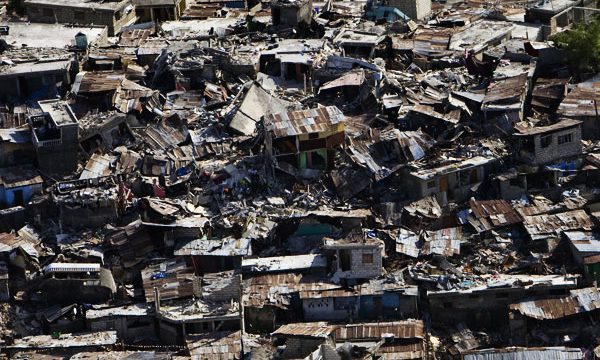Lawmakers call for an end to corruption in Haiti

By Marianela Toledo | Florida Watchdog
MIAMI — A group of elected officials from South Florida wanted to see first-hand the corruption and waste that is gripping the island nation of Haiti and to see how U.S. Agency for International Development — USAID — money is being spent.
It’s the same corruption and waste that Transparency International’s Corruption Perceptions Index has been reporting for years.
DEVASTATED: In 2010, a 7.0 earthquake devastated part of Hispaniola, with the epicenter of the quake 16 miles from the capital city Port-au-Prince, Haiti bore the brunt of the damages with its government reporting an estimated 230,000 deaths, 300,000 injuries, and 2 million displaced people.
“More actions are needed to root out corruption and improve transparency and accountability to help attract more private sector investment,” U.S. Rep. Ileana Ros-Lehtinen, R-Fla., said in a statement.
She visited Haiti two weeks ago with two other Florida U.S. representatives, Republican Mario Diaz-Balart and Democrat Frederica Wilson.
“With reports that U.S. government funding in Haiti has been mishandled, I look forward to getting an on-the-ground assessment of the current economic and political conditions in Haiti,” Diaz Balart said. “The ties between South Florida and Haiti run deep, and I am eager to once again meet with Haitian government officials, civil society, and the business sectors to discuss a strategy to restore stability and create prosperity through the country.”
A tall order
In 2010, a 7.0 earthquake devastated part of Hispaniola, the second largest island in the Caribbean, which is shared by Haiti and Dominican Republic.
With the epicenter of the quake 16 miles from Haiti’s capital Port-au-Prince, the impoverished nation bore the brunt of the destruction. The government reported an estimated 230,000 deaths, 300,000 injuries and 2 million people displaced in the wake of the earthquake.
Congress pledged more than $1 billion for reconstruction through USAID. A large portion of the money went to Haiti’s immediate needs, including search-and-rescue teams, emergency food assistance, emergency shelter and safe drinking water. Long-term funds for recovery and reconstruction are being provided incrementally over several years.
Last year,the Government Accountability Office recommended Congress require periodic progress reports on reconstruction and funding, and asked that an engineer be hired to oversee planning and construction of a new port. The GAO also called for a “community support mechanisms” to ensure success of a permanent housing program.
Despite calls for transparency, the USAID failed to make public basic information on where the money is going and how it’s being spent.
While all three South Florida U.S. representatives are upbeat about Haiti’s future, they said carte blanche spending with little oversight isn’t going to rebuild the country.
“It has been four years since the worst natural disaster in recent memory occurred in Haiti — the Haiti earthquake of 2010. Despite heavy investment in Haiti, many projected goals have not been met,” Wilson said. “It is time to renew our efforts to rebuild Haiti by insisting on accountability and transparency.”
Contact Marianela Toledo at Marianela.Toledo@FloridaWatchdog.org or on Twitter @mtoledoreporter







